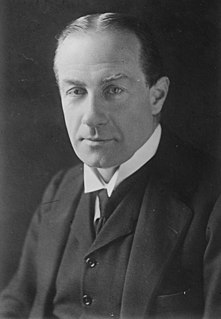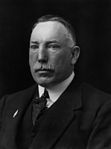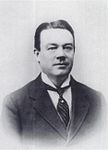
The United Kingdom is a unitary state with devolution that is governed within the framework of a parliamentary democracy under a constitutional monarchy in which the monarch, currently Queen Elizabeth II, is the head of state while the Prime Minister of the United Kingdom, currently Boris Johnson, is the head of government. Executive power is exercised by the British government, on behalf of and by the consent of the monarch, and the devolved governments of Scotland, Wales and Northern Ireland. Legislative power is vested in the two chambers of the Parliament of the United Kingdom, the House of Commons and the House of Lords, as well as in the Scottish and Welsh parliaments. The British political system is a two party system. Since the 1920s, the two dominant parties have been the Conservative Party and the Labour Party. Before the Labour Party rose in British politics, the Liberal Party was the other major political party, along with the Conservatives. While coalition and minority governments have been an occasional feature of parliamentary politics, the first-past-the-post electoral system used for general elections tends to maintain the dominance of these two parties, though each has in the past century relied upon a third party, such as the Liberal Democrats, to deliver a working majority in Parliament. A Conservative–Liberal Democrat coalition government held office from 2010 until 2015, the first coalition since 1945. The coalition ended following parliamentary elections on 7 May 2015, in which the Conservative Party won an outright majority of seats, 330 of the 650 seats in the House of Commons, while their coalition partners lost all but eight seats.
A university constituency is a constituency, used in elections to a legislature, that represents the members of one or more universities rather than residents of a geographical area. These may or may not involve plural voting, in which voters are eligible to vote in or as part of this entity and their home area's geographical constituency.
A member of parliament (MP) is the representative of the people who live in their constituency. In many countries with bicameral parliaments, this term implies members of the lower house, as upper houses often have a different title. Member of Congress or Deputy is an equivalent term in other jurisdictions. Parliamentarian is also sometimes used to describe members of parliament, but the term may also be used to refer to unelected government officials with specific roles in the parliament, such as the Senate Parliamentarian in the United States, or to imply the characteristic of performing the duties of a member of a legislature, e.g. "The two party leaders often disagreed on issues, but both were excellent parliamentarians and cooperated to get many good things done."

The 1935 United Kingdom general election was held on Thursday 14 November 1935 and resulted in a large, albeit reduced, majority for the National Government now led by Stanley Baldwin of the Conservative Party. The greatest number of members, as before, were Conservatives, while the National Liberal vote held steady. The much smaller National Labour vote also held steady but the resurge in the main Labour vote caused over a third of their MPs, including National Labour leader Ramsay MacDonald, to lose their seats.
Armagh or County Armagh was a parliamentary constituency in the House of Commons. It was replaced in boundary changes in 1983.
Londonderry was a Parliamentary Constituency in the House of Commons and also a constituency in elections to various regional bodies. It was replaced in boundary changes in 1983. It returned two MPs 1801–1885 and one 1922–1983.

In the United Kingdom (UK), each of the electoral areas or divisions called constituencies elects one member to the House of Commons.

The 2005 United Kingdom general election was held on Thursday 5 May 2005, to elect 646 members to the House of Commons. The Labour Party, led by Tony Blair, won its third consecutive victory, with Blair becoming the only Labour leader besides Harold Wilson to form three majority governments. However, its majority fell to 66 seats compared to the 167-seat majority it had won four years before. This was the first time the Labour Party had won a third consecutive election, and remains the party's most recent general election victory.

In the United Kingdom, a Member of Parliament (MP) is an individual elected to serve in the House of Commons of the Parliament of the United Kingdom.

The Government of Ireland Act 1920 was an Act passed by the Parliament of the United Kingdom to create two separate parliaments in Ireland: the Parliament of Northern Ireland and the Parliament of Southern Ireland. The Fifth Schedule to this act provided the constituencies for the House of Commons in these two separate parliaments. These same constituencies also replaced those provided in the Redistribution of Seats (Ireland) Act 1918 for representation of Ireland in the House of Commons of the United Kingdom at Westminster. Sinn Féin used these constituencies to elect the Second Dáil (1921–22) and those constituencies in Southern Ireland were used to elect the Third Dáil (1922–23).
University of Dublin is a university constituency in Ireland, which currently elects three senators to Seanad Éireann. Its electorate comprises the undergraduate scholars and graduates of the University of Dublin, whose sole constituent college is Trinity College Dublin, so it is often also referred to as the Trinity College constituency. Between 1613 and 1937 it elected MPs or TDs to a series of representative legislative bodies.

The 1922 United Kingdom general election in Northern Ireland was held on 15 November 1922. There were ten constituencies, seven single-seat constituencies with elected by FPTP and three two-seat constituencies with MPs elected by bloc voting. Only two of the constituencies had contested elections.

The 1924 United Kingdom general election in Northern Ireland was held on 29 October as part of the wider general election in the United Kingdom. There were ten constituencies, seven single-seat constituencies with elected by FPTP and three two-seat constituencies with MPs elected by bloc voting.

The 1929 United Kingdom general election in Northern Ireland was held on 30 May as part of the wider general election. There were ten constituencies, seven single-seat constituencies with elected by FPTP and three two-seat constituencies with MPs elected by bloc voting.

The 1935 United Kingdom general election in Northern Ireland was held on 14 November as part of the wider general election. There were ten constituencies, seven single-seat constituencies with elected by FPTP and three two-seat constituencies with MPs elected by bloc voting.
The 1945 United Kingdom general election in Northern Ireland was held on 5 July as part of the wider general election. There were ten constituencies, seven single-seat constituencies with elected by FPTP and three two-seat constituencies with MPs elected by bloc voting.
The 1951 United Kingdom general election in Northern Ireland was held on 25 October as part of the wider general election with 12 MPs elected in single-seat constituencies using first-past-the-post.
The 1955 United Kingdom general election in Northern Ireland was held on 26 May as part of the wider general election with 12 MPs elected in single-seat constituencies using first-past-the-post.







